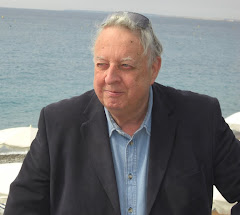The latest new CD to
hit my CD player features Alena Baeva, a violinist from Russia
and the Moscow Conservatoire, and Vadym Kholodenko, a pianist
from the Ukraine. Both are excellent musicians and form a good duo.
They play Schubert's Fantaisie D.934, a lovely work of which I
already have 19 other recordings. It's a wonderful work for the
pianist who has the lion's share of the music, a little less so for
the violinist who is often asked to assume the role of an obbligato
instrument whilst the pianist has all the tunes. No matter: Baeva and
Kholodenko give an excellent performance here.
They go on to play
Stravinsky's Divertimento for violin and piano, arranged by Samuel
Dushkin. Stravinsky's star has faded since the 1960s; at one time
some critic called him "the greatest composer of the twentieth
century", but those days have passed. His Divertimento is fine,
but it's very much bread-and-butter music, designed to bolster Igor's
finances. Baeva and partner give it their best go. Then come
Schumann's four Märchenbilder. I revere Schumann for his Lieder, but
otherwise he has rarely appealed to me. The Märchenbilder are no
great shakes, and it's not surprising they feature little on
programmes.
The final Fantasie
in this programme so titled is one by Olivier Messiaen. I feared the
worst, and my fears were doubly confirmed; the work is seven minutes
of tuneless and theme-less note spinning, and why the artists elected
to play it here, I cannot think. Maybe it was the only other work
they could find with Fantaisie in its title. To be avoided by all
lovers of music. The balance and recording of the CD are acceptable.
When played via my Spendor loudspeakers -- that always emphasise the
bass range -- the piano completely overwhelmed the violin for most of
the time in the Schubert Fantaisie. Listened to it again via my Sennheiser wireless headphones,
the balance was OK, with the bass less dominant.
Not, then, a
"must-have" CD. Thinking of the Messiaen piece: why is it
that a century that could boast composers such as Rachmaninov,
Sibelius, Debussy, Ravel, Elgar, Britten, Stravinsky, Puccini, Prokofiev,
Shostakovich, and others, could produce pretty well nobody of note
after around 1960? There are many composers of classical music
post-1960, but few whose works are ever played more than once.
